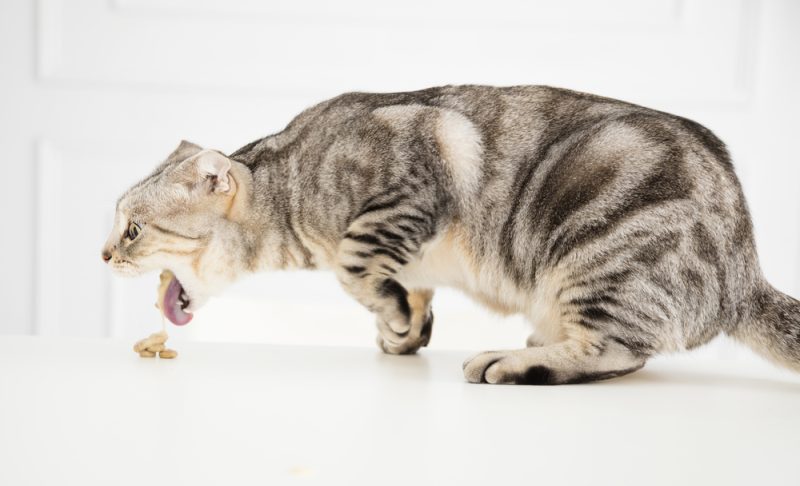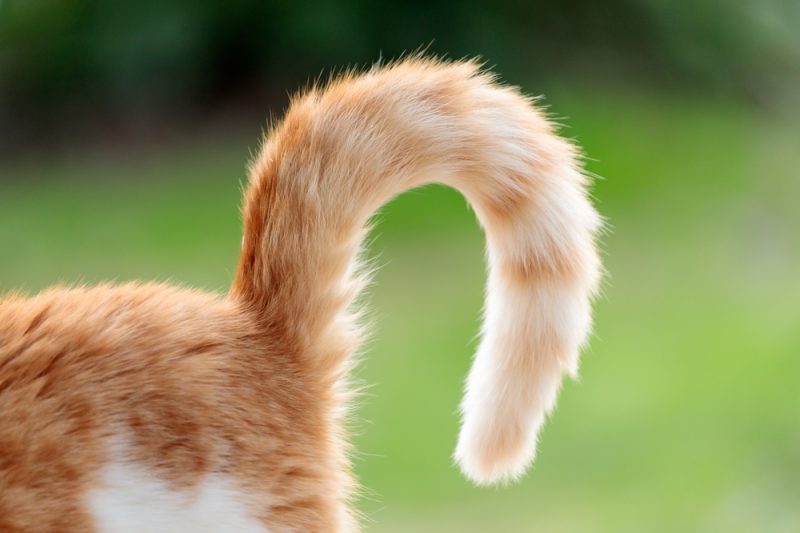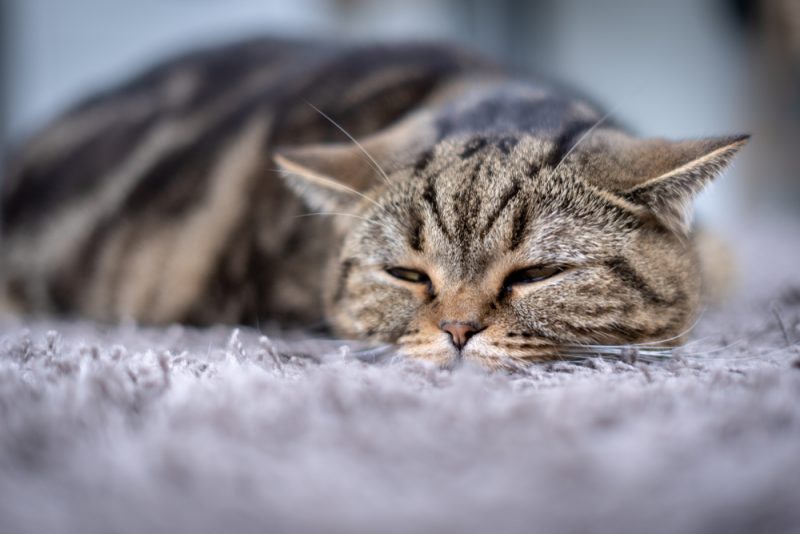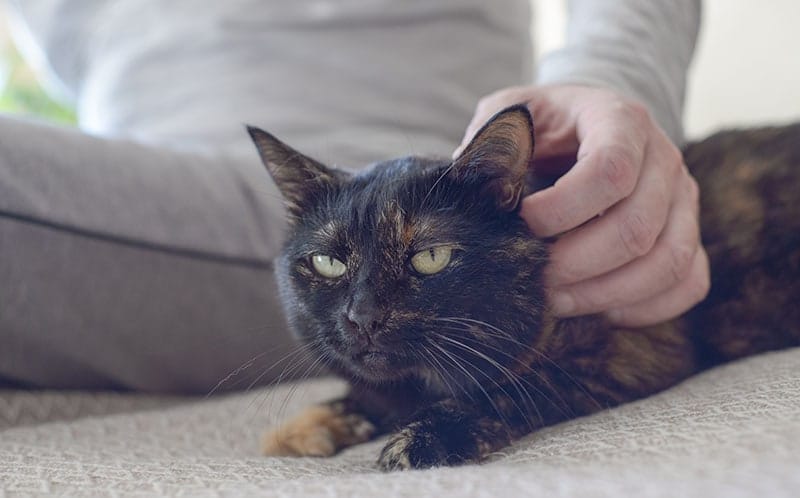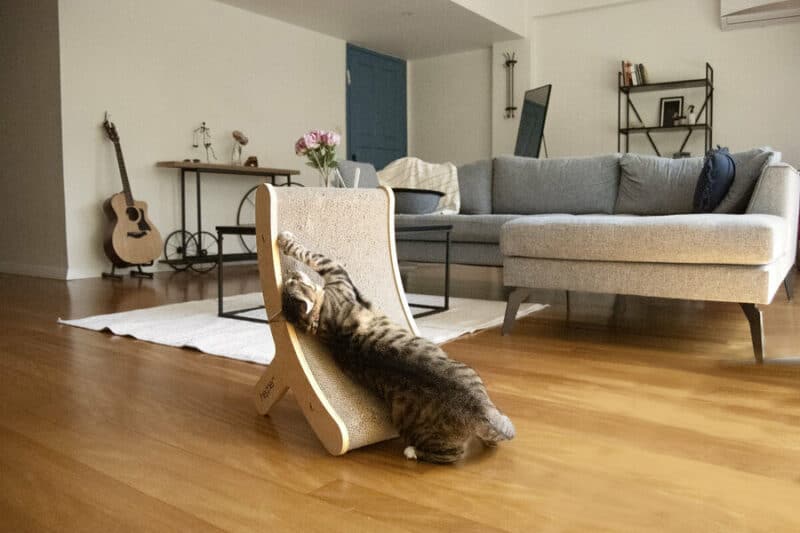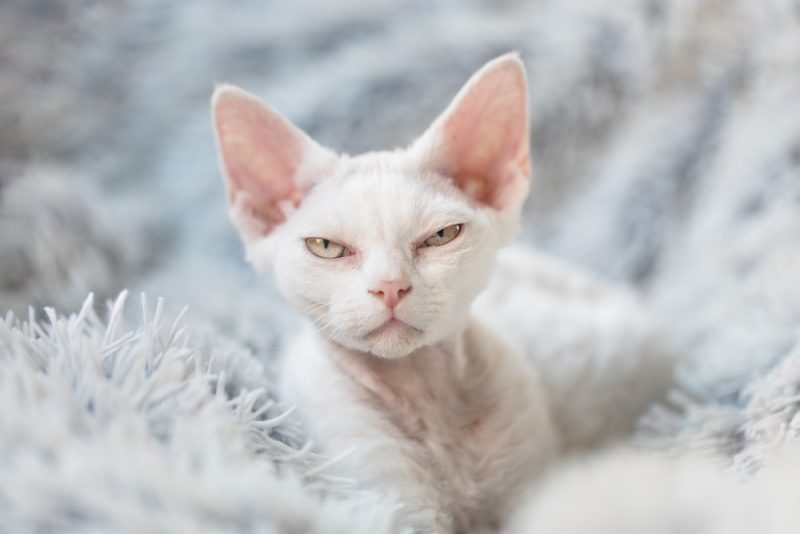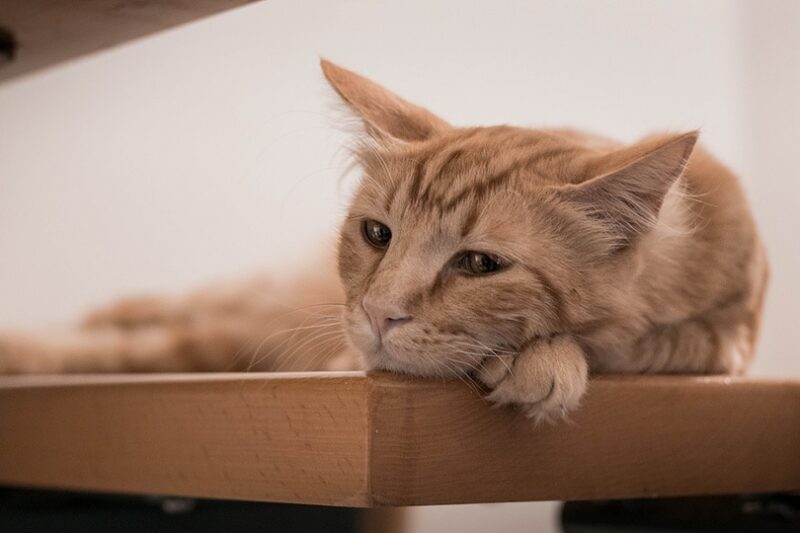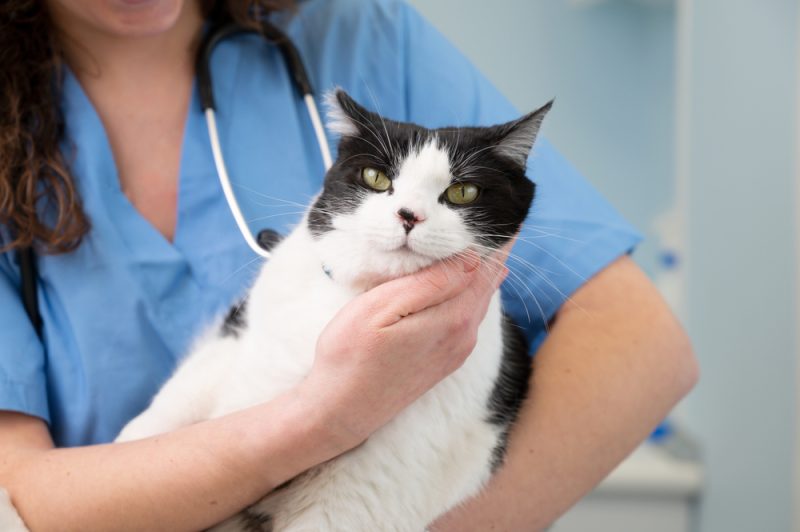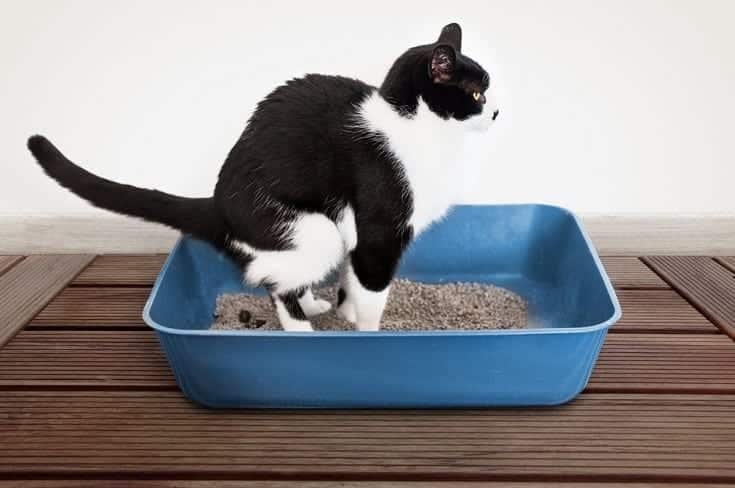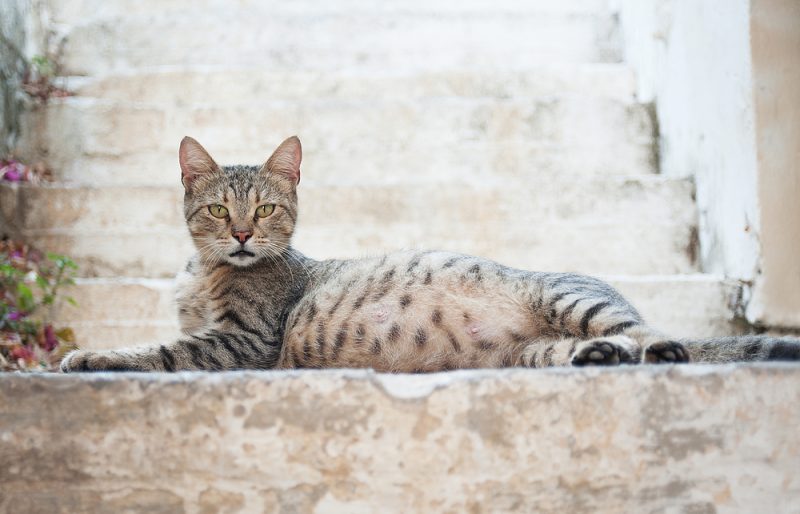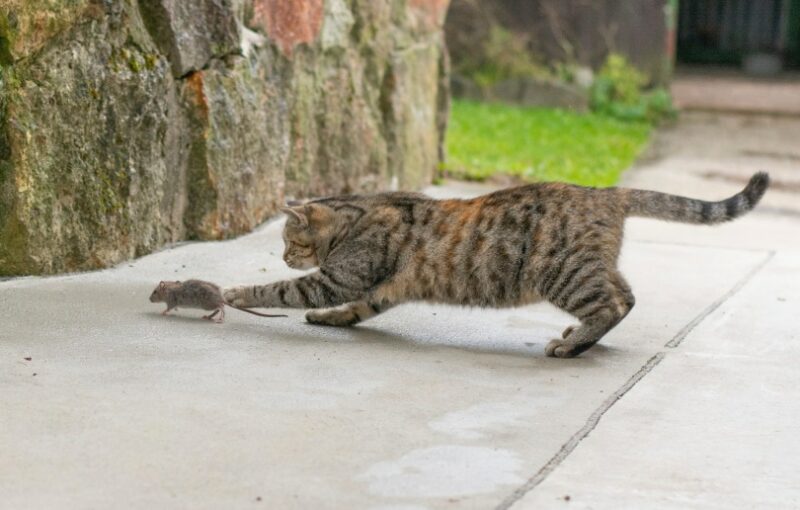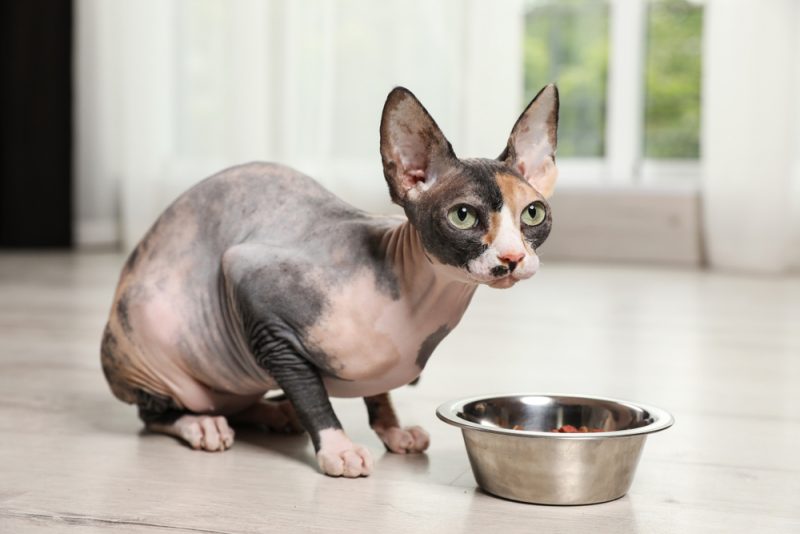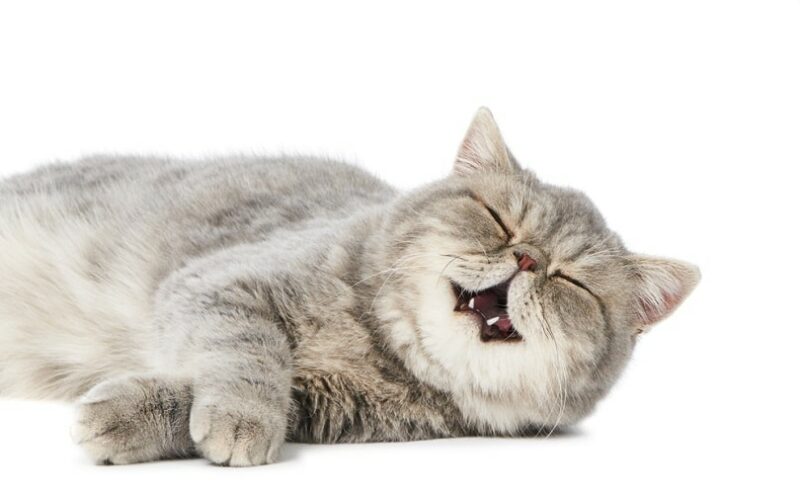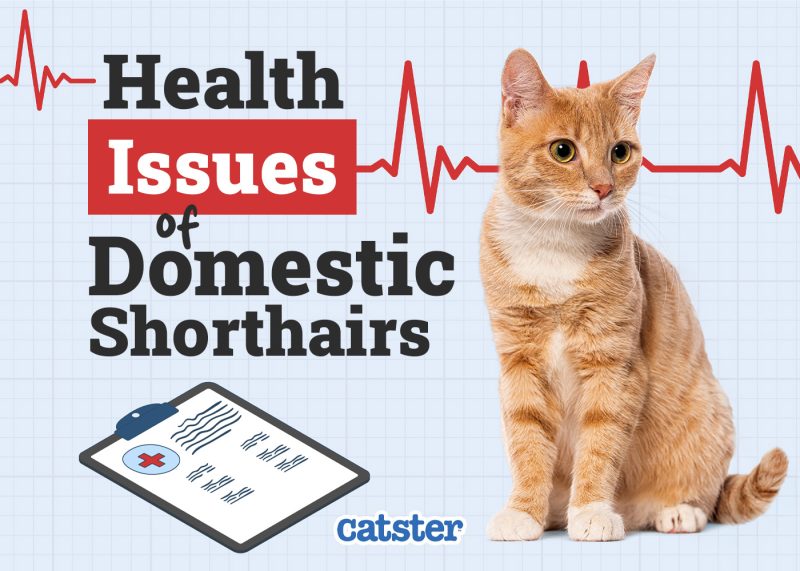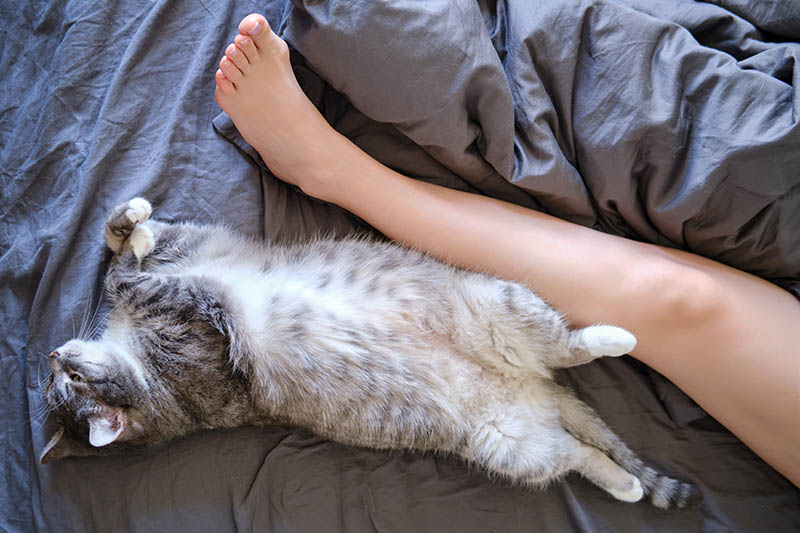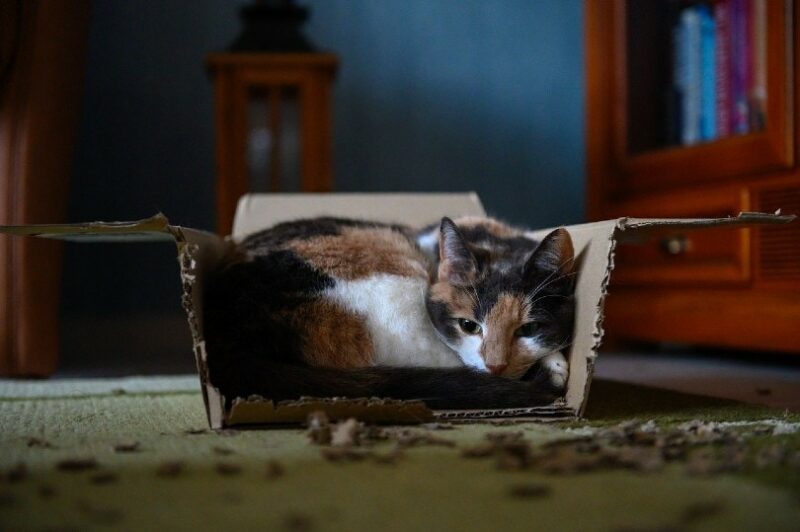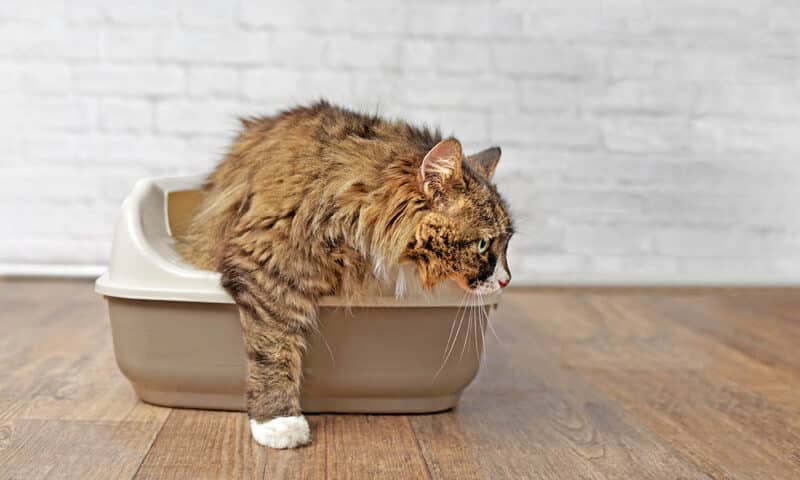If your cat starts throwing up after they eat, it’s obviously very alarming behavior that you want to get to the bottom of as soon as possible. But what exactly could be the cause of your kitty’s stomach issues? Vomiting itself is a non-specific sign with many possible causes. It is also easy to confuse vomiting with coughing and regurgitation in cats; it’s best to show your veterinarian videos to ensure your cat’s behavior is true vomiting. Some signs of true vomiting are abdominal contractions and bringing up stomach contents.
Digestive problems can be common for cats, but it can be quite tricky to pinpoint an exact cause without some trial and error—and the help of a vet. Before you make an appointment, though, you can check out some potential things that could be the cause of your cat’s throwing up down below.

The 8 Potential Reasons Your Cat Is Throwing Up After Eating
1. They Ate Too Quickly
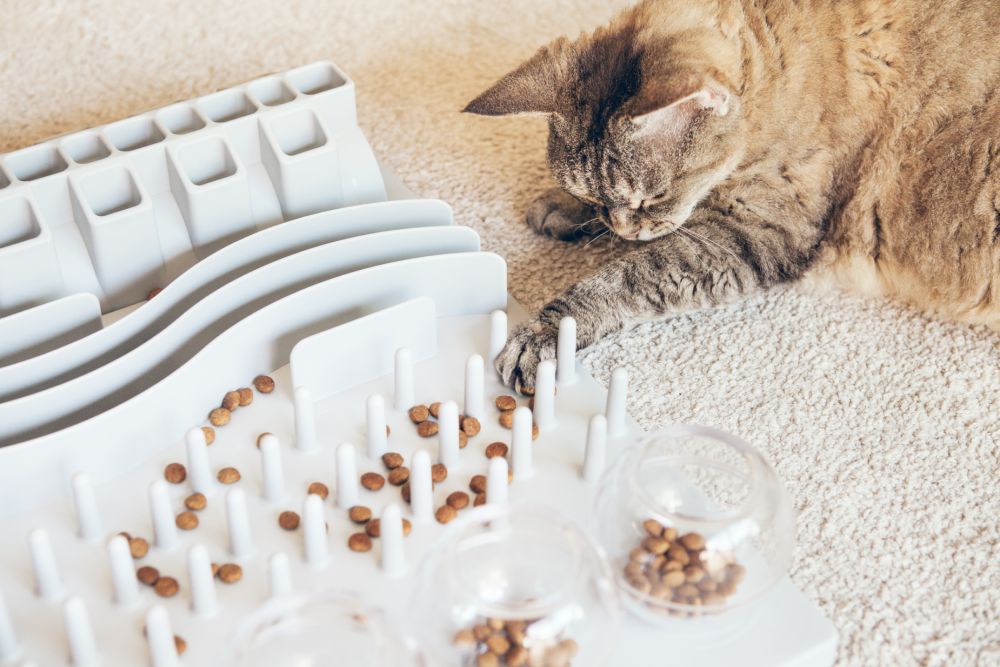
Perhaps the most common reason a cat throws up after eating is that they ate too fast. Like us, cats ingest small amounts of air when they gulp their food. What happens to you when that happens? Gas or burping, if we had to guess. Those happen to your cat too, but vomiting can also occur in some cases.
You can help your cat stop eating so fast by giving them smaller, more frequent meals. You should also consider buying a specially made slow-feeding cat bowl that forces your cat to eat in slow, measured bites.
2. They Ate Too Much
Kitties that get ove-rexcited at mealtime can easily eat too much and find themselves vomiting the excess in a corner later. You can spot this if your cat is regurgitating their food into the food bowl, water bowl, or on the ground. Eating too much is very common in multi-cat households where either cat eats the other’s food, effectively giving one cat a kitty complex about needing to eat as much as possible. It can also be due to overfeeding on your part. Use your cat’s body condition score as a guide as to whether they are eating too much 1.
To combat this, we suggest feeding your cats in separate areas if you’re in a multi-cat household. You should also consider downsizing their portions. Feeding smaller, more frequent meals throughout the day is the easiest way to ensure your cat doesn’t eat too much in one sitting.
- If you’re looking for an effective yet safe solution to cleaning up vomit, check out our favorite pet-friendly products here.
3. Food Intolerance Or Allergies
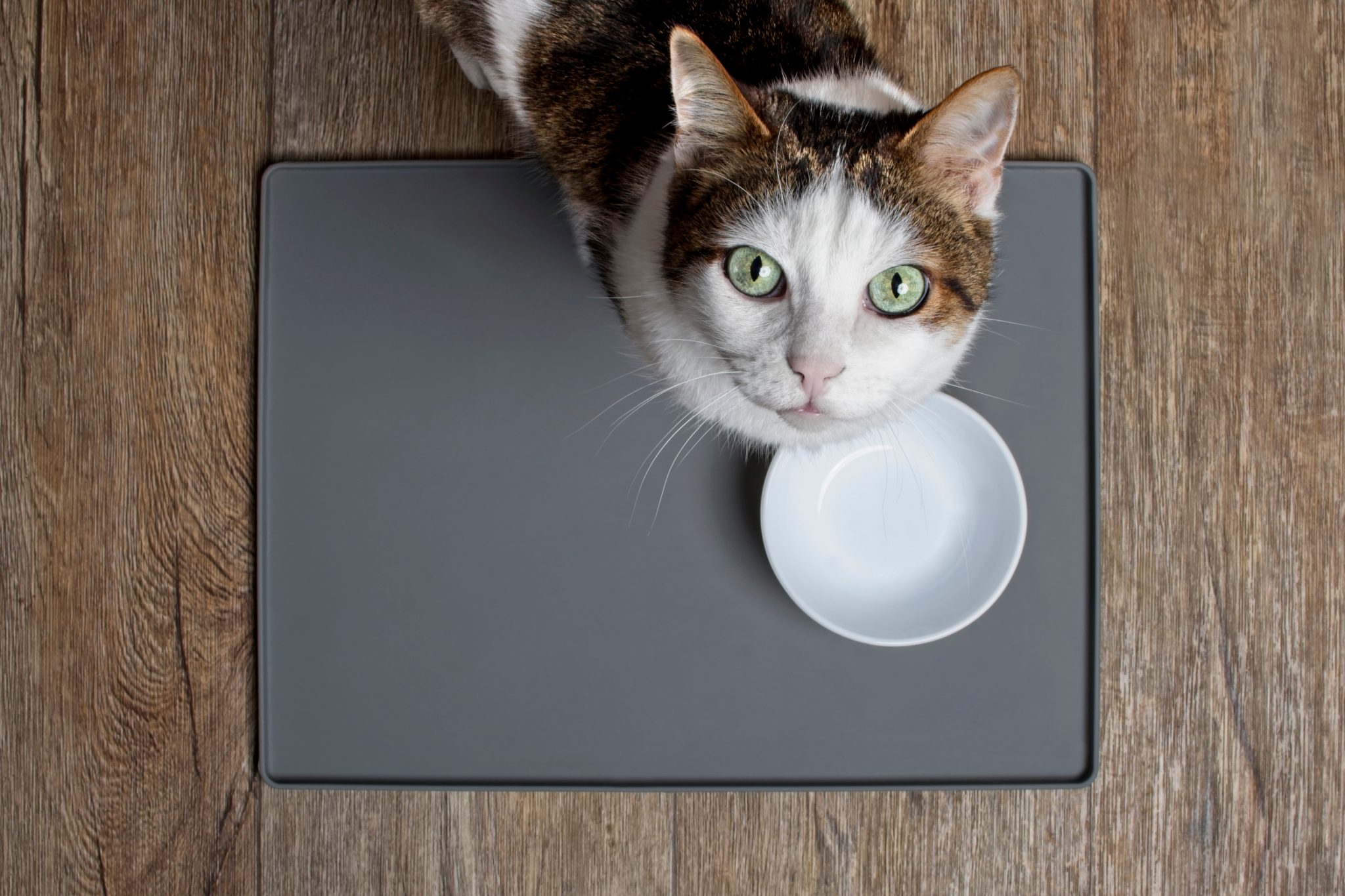
Additives, preservatives, food colorings, and other artificial ingredients in your cat’s dry food could be playing poorly with their stomach and causing vomiting, although cat food ingredients are generally well tolerated by most cats. Sometimes cats are allergic to perfectly healthy ingredients, usually a specific kind of protein e.g. chicken or beef. If your cat has eaten something new, or something they shouldn’t have (dietary indiscretion), this could also cause vomiting.
We recommend making sure your cat can’t get into something they shouldn’t. This includes human food, household plants and more. You can try changing the diet, but there are so many options out there from gastrointestinal diets to hypoallergenic diets that we recommend speaking to a vet about dietary choices. One tactic they may use is an elimination diet, but it’s best to follow their advice on this.
Need veterinary advice but can't get to the clinic? Catster recommends PangoVet, our online veterinary service. Talk to a vet online and get the answers and advice you need for your cat without having to leave your living room — all at an affordable price!
4. Hairballs
More than a few hairballs per month should be considered abnormally high and, in fact, could contribute to your cat vomiting. A poor grooming routine or stomach health could be to blame. However, there is often an underlying cause to bringing up hairballs.
Try grooming your cat with a grooming glove or brush to remove dead hair and reduce the number of hairballs your cat throws up. Another option is to put your cat on a special hairball reduction diet that promotes good stomach health and helps them pass hairballs. However, if vomiting up hairballs is a common problem, it needs to be checked out by your vet.
5. Stress
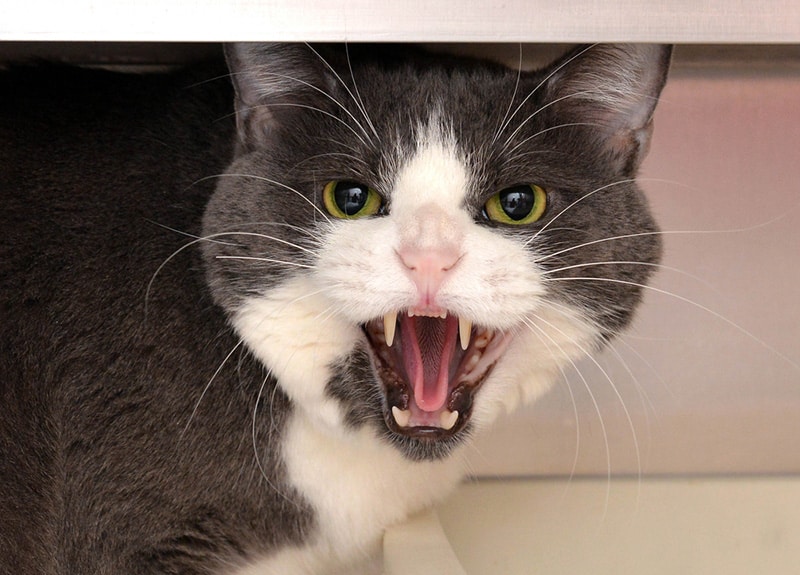
The effects of stress on the stomach and intestines are well documented in animals and people, and involves reduced blood supply to the stomach. Vomiting can be a side effect of stress induced by major or even minor life changes. Moving, new babies, and new pets in the home are a few common reasons your cat could be stressed out. Even something like a moved litter box or missing their feeding time can cause your cat significant stress, in turn inducing vomiting.
We recommend a vet visit to rule out other causes of vomiting and for treatment of your cat’s anxiety. If your cat is vomiting from stress, pay attention to your cat’s trigger and adjust from there. If you can completely eliminate the trigger, that is ideal, but if not, you might need to work to expose your cat to it gradually so that they’re more comfortable. Some cat’s are more anxious than others, and those with anxiety disorders can benefit from anxiety medication.
6. Stomach Conditions
Inflammatory bowel disease, gastritis, bacterial infections, and stomach parasites are all known to cause vomiting, along with other signs. Vomiting, diarrhea, constipation, and frequent litter box visits are some signs that could signify an underlying stomach condition.
If you suspect your cat has a stomach condition, we recommend taking your cat to the visit for a full workup to deduce the cause.
7. Gastrointestinal Blockage
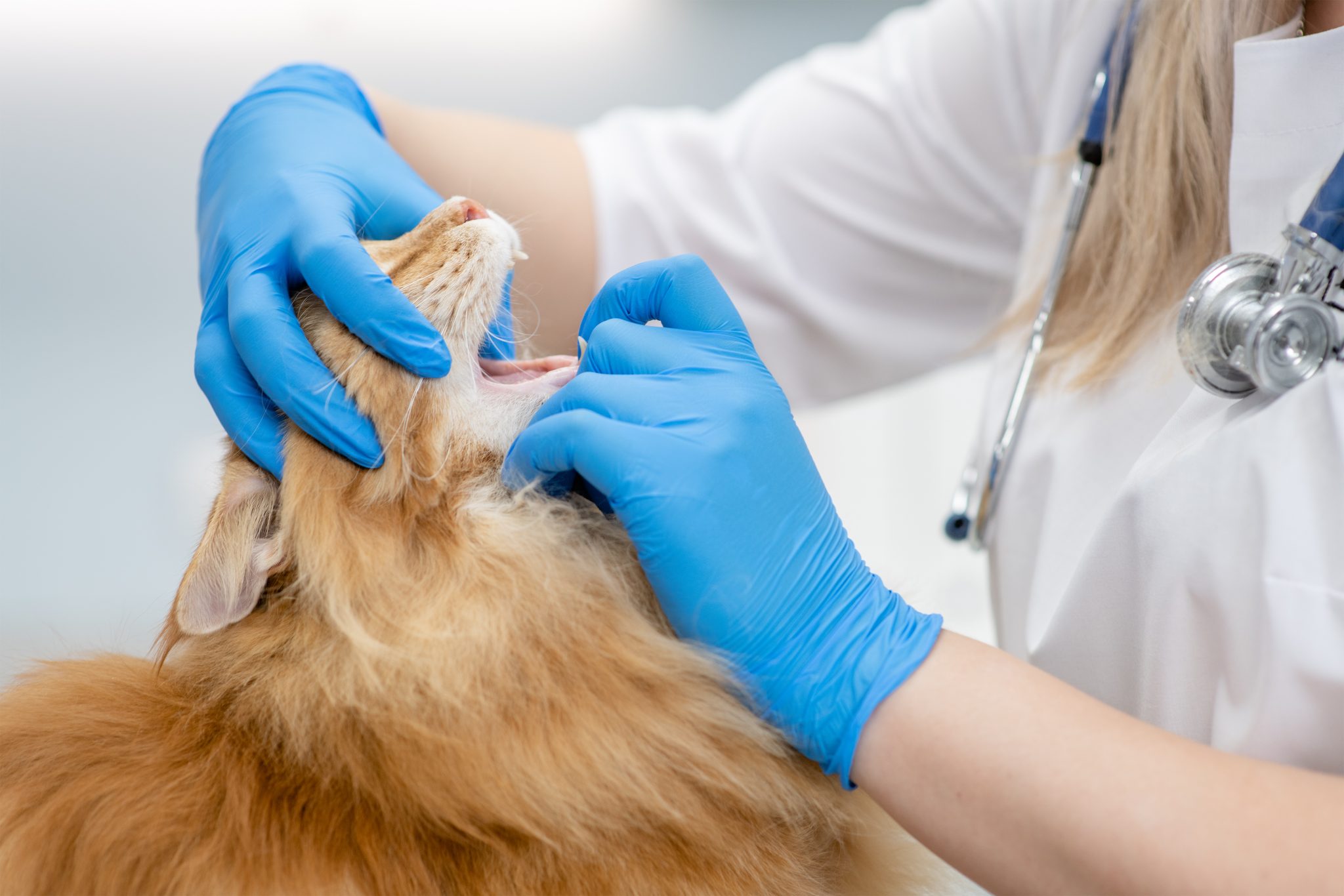
A toy, string, or other small object lodged in your cat’s stomach or intestine could trigger them to vomit as ingesta is not able to move forward in the digestive tract. Other concerning signs for gastrointestinal blockage include inappetence, passing small/loose stools, abdominal pain, and lethargy. This is an emergency situation and requires a prompt vet visit.
Go to the vet! Your vet will be able to do an X-ray and see if any foreign objects are blocking up your cat’s GI tract before determining the proper course of action.
8. Metabolic Disease
Certain changes in your cat’s body function can make them feel unwell and lead to nausea and vomiting. Kidney disease, liver disease, and an overactive thyroid gland are common causes of vomiting in cats. Metabolic disease may be accompanied by other signs like weight loss, increased thirst, appetite changes, behavioral changes, lethargy, and diarrhea.
Schedule a veterinary visit for your cat. Your vet can perform bloodwork to ensure everything is functioning normally, and give treatment recommendations if there is something amiss.

Final Thoughts
Cats have surprisingly delicate stomachs that can get upset and spew vomit for a variety of reasons. Eating too quickly, too much, food intolerance, and plain old stress are just a few possibilities. You can narrow some of these down with careful observation, but in the end, your vet will be most able to diagnose what’s wrong with your kitty’s stomach. If it is severe, accompanied by other signs, or persists for more than 48 hours, we suggest giving them a call.
Featured Image Credit: Tom Wang, Shutterstock

